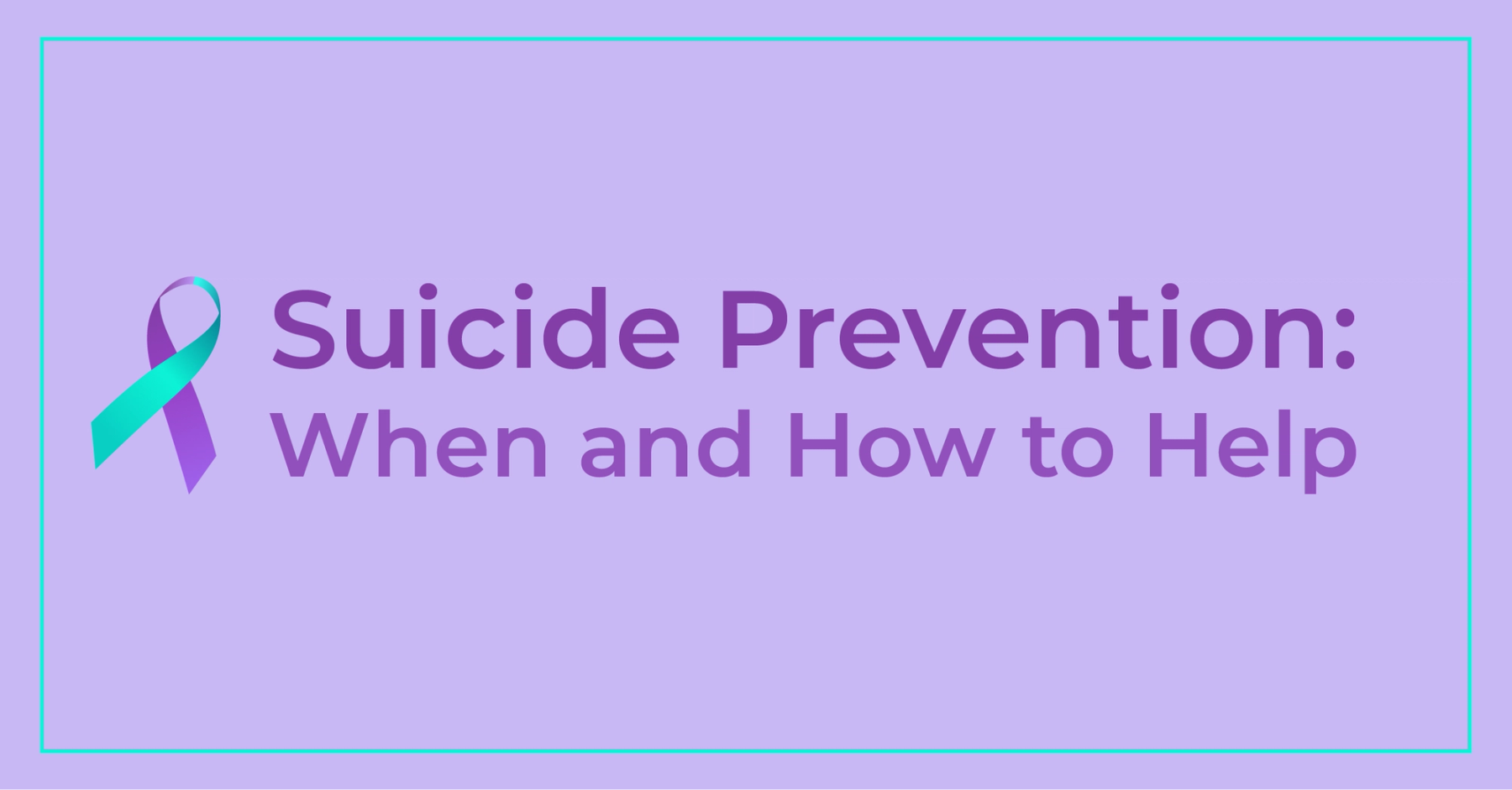September 9th, 2021

According to the Centers for Disease Control and Prevention, 120-130 adults die by suicide; that is approximately one every 11-12 minutes. In the United States, it is the 10th leading cause of death. Worldwide, suicide is the 17th leading cause of death.
Suicide rates vary among different groups, for example, among adolescents and young adults (ages 10-34), suicide is the second leading cause of death, with specific ethnic and racial groups also being impacted at higher rates.
All of this data may seem frightening and overwhelming, but there is hope, because suicide, by and large, can be prevented.
Simply stated, suicide prevention involves a variety of individual, family, community, and societal programs, policies, and practices that decrease the risk for suicide.
These practices primarily work by decreasing risk factors, which increase suicide risk, while increasing protective factors, which decrease suicide risk.

Skills for managing difficult or uncomfortable emotions
Examples of effective suicide prevention include policies that enhance financial and housing security, which result in decreased housing loss and emotional and financial stress.
Alternatively, emphasis on mental health coverage through both insurance coverage and provision of care in underserved areas bolsters protective factors by providing access to health care, teaching skills for coping and problem-solving, and increasing community support.
Similar strategies which increase protective factors include placing barriers on tall structures, installation of signs and telephones at subway stations, and safe storage practices for weapons and medications to limit access to means of suicide.
There are also several ways in which each of us can work towards the goal of suicide prevention. Some of these ways are to learn the warning signs for suicide, encourage help-seeking, and know what to do if someone is suicidal.

The following have been identified as suicide warning signs:
Talking about:
Acting/Behaving:
Feeling:
If you are having suicidal thoughts or observe any of the above signs in someone else, you can do the following:
Whether before, during, or after a crisis, there are many ways we can work together to provide support and prevent suicide.

The month of September is Suicide Prevention Month, with the week of 9/5/21-9/11/21 marking Suicide Prevention Week, and World Suicide Prevention Day on 9/10/21. This period is dedicated to tackling the stigma associated with suicide by promoting awareness, education, and support to ensure that those affected by suicide are aware of and have access to life-saving resources.
We remember and support those whose lives have been impacted by suicide and we fight to challenge the stigma associated with mental illness and suicidality.
As a therapist and human, I have witnessed and experienced the impact stigma has on help-seeking and the lives that are unnecessarily lost as a result.
This October 10th, I am running the Chicago Marathon for the charity, Hope for the Day, which emphasizes suicide prevention through early intervention, education, and destigmatizing mental illness and mental health treatment. Hope for the Day tells us all, “It’s OK not to be OK.”
Please donate to Hope for the Day to support their mission of suicide prevention.
Written By: Jill Perry, M.A., LCPC
At Clarity Clinic, we have highly trained staff who specialize in therapy and psychiatry services. To learn more about how we can support your mental health, call Clarity Clinic on (312) 815-9660 or schedule an appointment today.

Our Services
Virtual/Online CarePHP and IOPAdult PsychiatryChild & Adolescent PsychiatryAdult TherapyChild & Adolescent TherapyCouples CounselingFamily TherapyGroup TherapyPsychological TestingTranscranial Magnetic Stimulation (TMS)Resources
Refer a PatientCareersClinical Training OpportunitiesOur ProvidersFree Mental Health TestsCommonly Prescribed MedicationsLocationsBlogIn The NewsClarity Through CharityClarity for AllQuick Links
Patient PortalFAQsAccepted InsurancesContact us